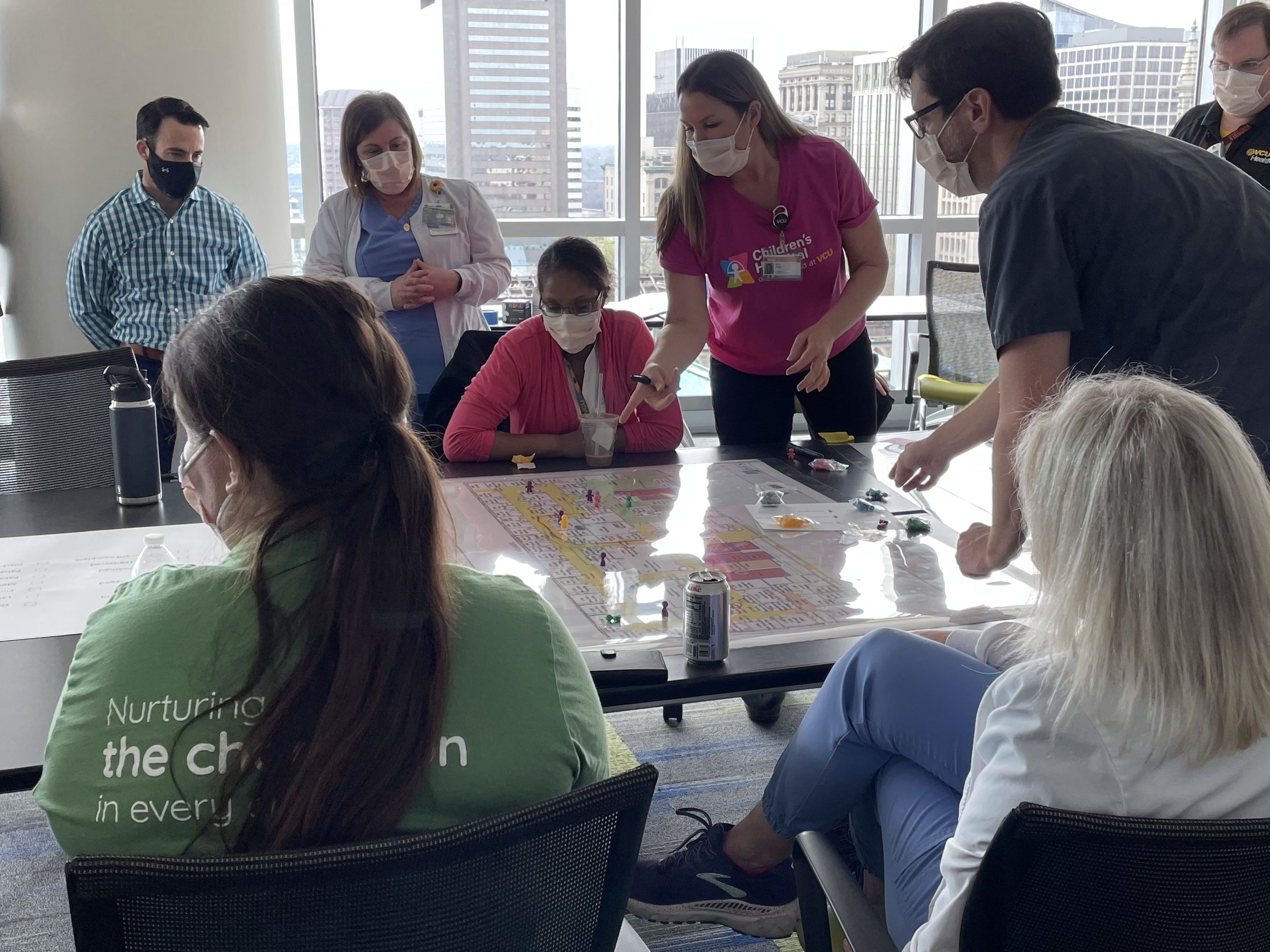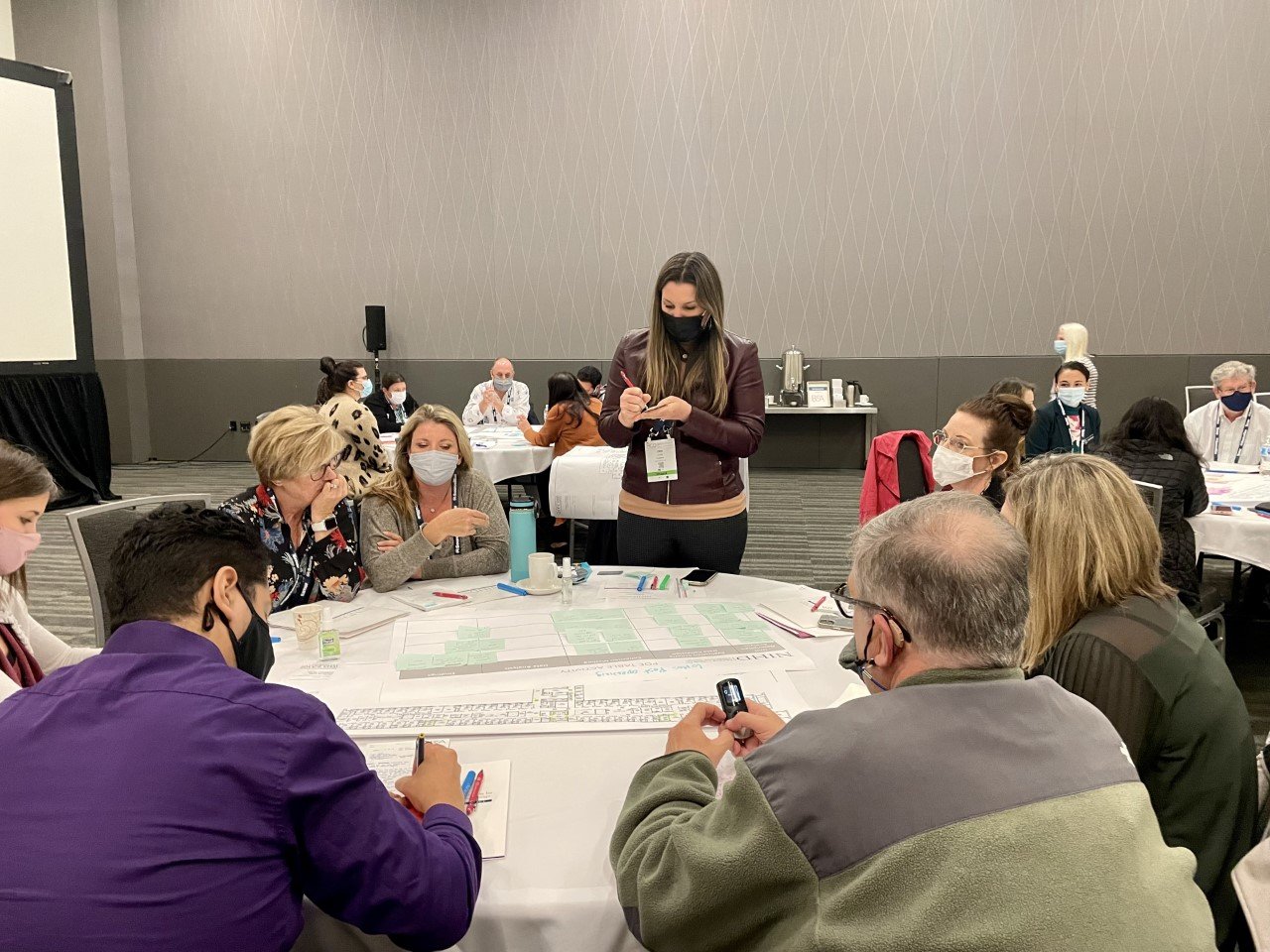Blog Contribution by Erin Clark RN, MS, EDAC, Clinical Operations Specialist.
I have been a registered nurse for 15 years and my early nursing career started like most in a bedside clinical role across hospitals in California. I took my nursing experience abroad as a Peace Corps volunteer in Malawi, Africa for a little over 2 years where I engaged with the community in several population health projects as well as nursing education in a third world community setting. While living in a village "the bush” with no electricity or running water, I made connections with my community and was able to see healthcare in a different light. I brought back a new understanding of healthcare needs, realizing that some of the struggles a village in the third world are not that unlike those we face in the US. As I continued my nursing practice in the US, I started to realize that the environment plays such an immense role in how we provide care, how we relate to our patients, and how it can truly influence patient care outcomes.
At that point, I was just curious. Who designs these environments? What are the driving factors? How are these decisions made? How could I contribute? What research is out there?
From there, I studied Nursing Leadership with a focus on healthcare design. I spent a lot of time trying to find other nurses who did what I was looking for. My first role in the industry was as a Transition Planner where I was given the opportunity to work on projects of different sizes and scopes across the country. I learned as much as I could from my projects, attended conferences, read the research, and developed best practices and lessons learned from each of our clients. I found I loved healthcare operations and the design process, so I went out on my own 3 years ago to pursue that.
So, what do you do for work?
I own a company called ClarkRN and we focus on operational planning for the design and transition of healthcare facilities. I engaged directly with healthcare organizations or participate as an integrated team member with architecture, technology, and transition planning firms to bring the operational planning expertise to various projects.
Will you share your journey to ClarkRN?
I think my background in nursing goes a long way. Being able to speak the language and relate on a personal level to clinical needs truly has an impact. That said, I had to learn the design side to be able to translate what these needs were in relation to new environments.
To do this, I became as active as I could through NIHD, conferencing, writing, obtaining certifications, and teaching. I think the key for me was the opportunity to learn from some amazing mentors who have been in my shoes and could share their successes and challenges of being a nurse consultant.
A Day in the life with ClarkRN:
Like many, COVID-19 has changed my day to day. I work with several clients on a daily basis via zoom, and some weeks I am onsite in workshops, mockups, and simulations. I function as a project manager on some projects, and as an advisor on others while running day-to-day business operations.
How does your role as a nurse help in your role?
What excites you about your work every day?
What I love about this role is helping healthcare organizations to think outside the box and push the “current state” thinking into something that can be better, easier, more efficient. I don’t have all the answers for them, I have the methods to guide them to develop the answers that fit best for where their facility is and where it wants to go. Working with organizations all over the country, I take the tidbits of past successes and ask “what if” in a language that translates to the needs of any client I’m working with. I get excited about the variety of projects I work on and the different role types I interact with from supply chain to IT, to nursing, to executives, and many others.
My role as a nurse gave me a baseline understanding of healthcare and the needs of clinical spaces which has been helpful in every project I work on. There is a common bond among nurses and a sense of comfort for clients when nurses are part of the integrated team. Nursing input is a “piece of the pie” in healthcare facility projects, and I have been lucky to be able to serve in that role while learning about all the other aspects that make up a successful project team.
Will you share advice for someone interested in this career path?
My best advice is to be curious. Ask questions. Reach out.
I had no idea this role was even an option until I dug in. Unlike many in this type of nurse consultant role, I didn’t follow the hospital administration pathway, and I struggled for a while to understand some of the organizational drivers and how decisions are made. I found it important to know what I didn’t know and spend the time to learn it.
Find your people.
I wouldn’t be where I am if it wasn’t for the mentors along the way, the organizations of like-passionate people, the connections in the industry I’ve made. “Nurse Consultant” is a very broad term, and what I’ve realized over the years is the importance of focusing on what you love the most and harnessing that. I can’t tell you how many hours I spent interviewing other nurse consultants, learning from them on projects, and I continue to do so because there is so much opportunity out there. Whether you are an independent consultant, a consultant within a firm, or a “consultant” within your healthcare organization, find your people and learn from them.
Take a chance.
You know more than you think you do. As a nurse consultant, you are considered an expert. It took me a while to understand that that was what I was. As nurses, we have experiences that are hard to relate to outside of the nursing world. Yet, I always felt that everyone knew what nurses do. Guess what, they don’t! The personal experience of caring for patients and the needs from an environment and technology standpoint are things only we truly understand, and that goes a long way in this industry.


